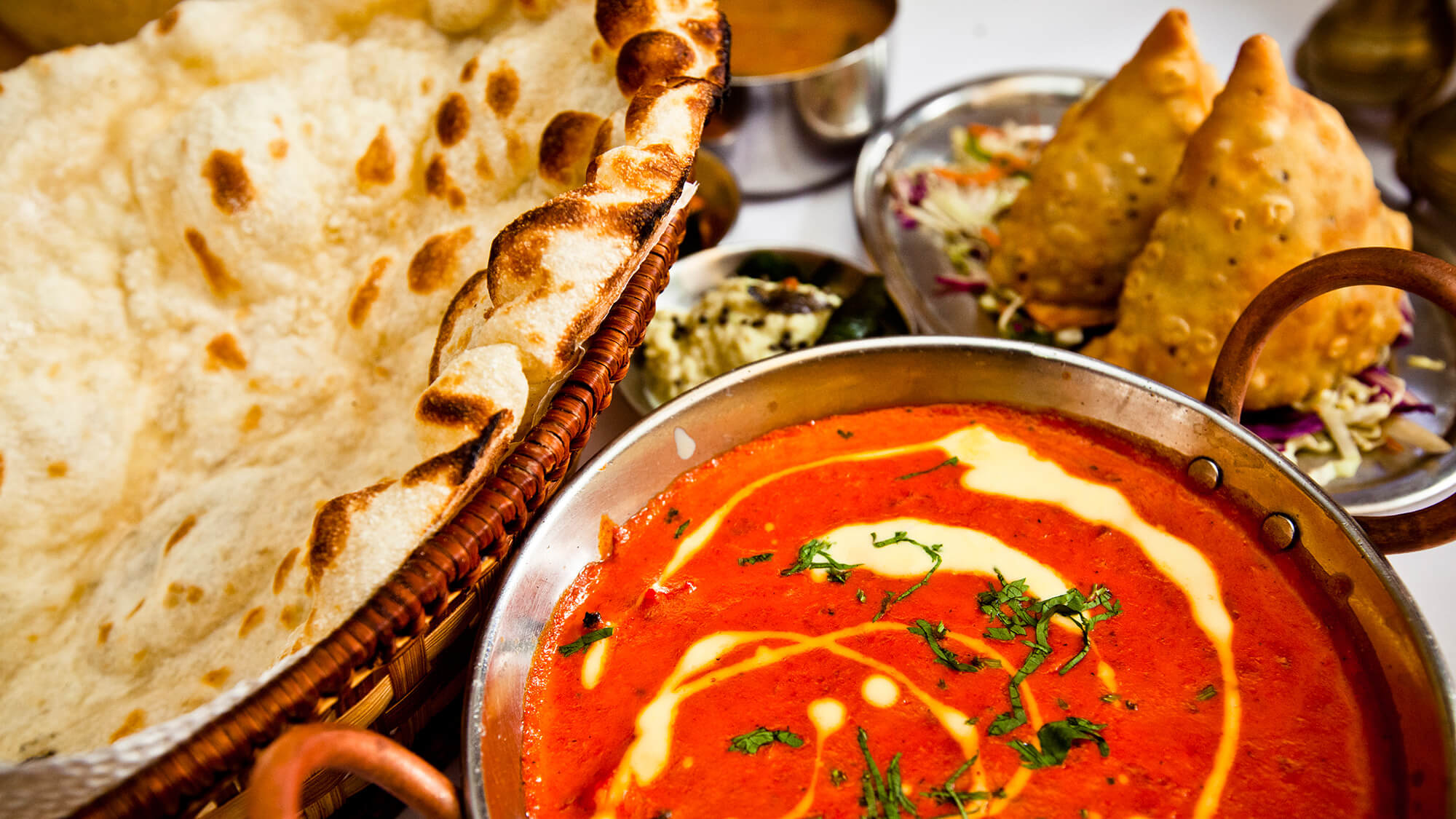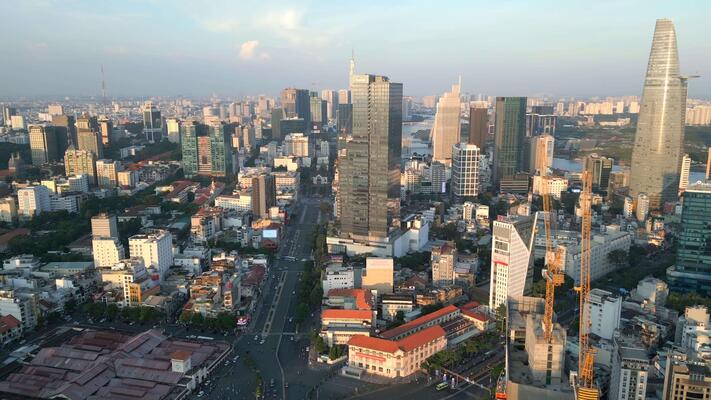Vietnam is a country renowned for its vibrant and diverse cuisine. For Muslim travelers, however, finding halal food in Vietnam can be challenging. Despite Vietnam being a predominantly non-Muslim country, the growing number of Muslim tourists has encouraged the development of halal food in Vietnam, with a range of halal-certified restaurants, grocery stores, and prayer facilities.This guide provides an overview to help Muslim visitors explore Vietnam’s food culture while adhering to halal principles.
1. Why Halal Food in Vietnam is Important for Muslim Travelers?

Halal food is fundamental to Muslim travelers as it adheres to Islamic principles, ensuring that the food consumed is permissible and clean. For Muslims, eating halal is not just about dietary preferences but about fulfilling an essential aspect of their faith. Beyond religious adherence, halal food in Vietnam also enables Muslim travelers to safely explore a destination’s culinary culture without compromising their beliefs.
Vietnam’s cuisine, known for its freshness and variety, can be adapted to meet halal requirements, offering Muslim visitors the chance to enjoy local flavors while maintaining peace of mind. By focusing on halal-certified restaurants and carefully selected dishes, Muslim travelers can experience the authentic tastes of Vietnam in a way that respects their values.
2. Growth of Halal Cuisine in Vietnam

In recent years, Vietnam has experienced a steady increase in Muslim tourism, particularly from Malaysia, Indonesia, and the Middle East. This influx of Muslim visitors has driven the demand for halal dining options. Cities like
Ho Chi Minh City and
Hanoi have responded to this need by expanding their range of halal-certified restaurants and providing Muslim-friendly facilities such as prayer rooms in shopping malls and hotels.
Smaller urban cities have also started offering more halal food in Vietnam. Da Nang and Nha Trang, two of the most visited destinations, are beginning to accommodate Muslim travelers with a growing number of halal-friendly establishments. This shift highlights Vietnam’s efforts to become a more inclusive destination for Muslim tourists in the future.
>>>> Explore More: The Muslim Traveler’s Guide to Halal Food in Vietnam Airport
3. Halal Certification in Vietnam
Organizations like the Vietnam Certification Centre, with the Vietnam Halal Certification Authority primarily oversee halal certification in Vietnam. These agencies ensure that restaurants, food products, and grocery stores meet Islamic dietary standards. Halal-certified establishments prominently display official logos or certificates, making it easier for Muslim travelers to identify compliant halal food in Vietnam.
Additionally, many mosques in cities like Ho Chi Minh City and Hanoi serve as valuable resources for locating halal restaurants and understanding the local halal food in Vietnam. These certification processes and resources assure Muslim travelers, allowing them to dine with confidence and focus on enjoying their journey.
4. Top Cities Offering Halal Food in Vietnam
Halal Food in Ho Chi Minh City
Ho Chi Minh City is the most halal-friendly city in Vietnam, with a wide range of halal-certified restaurants and amenities catering to Muslim visitors. Restaurants like
Halal Saigon and
Kampung Melayu offer a mix of Vietnamese and international dishes prepared in accordance with halal guidelines, and many other restaurants have
Muslim food in Ho Chi Minh. The city also boasts halal-friendly street markets and grocery stores, making it convenient for Muslim travelers to find food and ingredients.
>>> Explore more: Top 15+ Best Halal Food in Ho Chi Minh City (Including Airport Options)

Halal Food in Hanoi
In
Hanoi, the capital city, the halal food scene is steadily growing. Restaurants such as
Zaynab Restaurant and
D’Lions provide halal-certified versions of traditional Vietnamese dishes like pho and bun cha, as well as Middle Eastern cuisine. Additionally, the city’s vibrant culture and historical landmarks add to its appeal as a halal-friendly destination. For more information, you can check out the detailed list of
10 Halal restaurants in Hanoi for a complete guide.
While halal food in Vietnam options are more limited in the central and southern regions, such as Da Nang and the
Mekong Delta region, the number of halal-certified restaurants is increasing. Planning meals in advance and researching halal-friendly locations are essential when visiting these regions. Despite the challenges, these areas offer unique opportunities to experience Vietnam’s coastal beauty and traditional cuisine with some halal adaptations.
Halal Food In Vietnam: Traditional Vietnamese Dishes Options
Many traditional Vietnamese dishes can be adapted to meet halal requirements, allowing Muslim travelers to enjoy the country’s renowned culinary flavors.
- Pho (Vietnamese Noodle Soup): This iconic noodle soup, often made with beef or chicken, can be prepared using halal-certified meat. The broth, infused with herbs and spices, offers a comforting and flavorful experience.
- Bun Cha (Vermicelli Dipped with Fish Sauce and Grilled Pork): Bun Cha is traditionally made with pork, but it can be prepared using halal-certified meat instead. The grilled meat is served with rice vermicelli, fresh herbs, and a dipping sauce made with halal fish sauce, lime, and sugar.
- Banh Mi (Vietnamese Sandwich): A popular street food, banh mi is a baguette sandwich that can be filled with halal-friendly ingredients such as chicken, eggs, and vegetables.
- Nem Cuon (Fresh Spring Rolls): These light, healthy rolls are made with rice paper and typically contain vegetables, herbs, and halal-certified shrimp or chicken.
- Com Tam (Broken Rice): Known as broken rice, this dish can be served with halal-friendly grilled chicken or fish, making it a filling and flavorful option.
- Che (Vietnamese Sweet Desserts): Many Vietnamese desserts are naturally halal, such as che 3 mau (three-color dessert), che dau xanh (mung bean dessert), and che bap (sweet corn pudding). They are typically made with coconut milk, beans, and tapioca, making them a great halal-friendly treat.
Read More: TOP 10 Halal Restaurants in Hanoi – A Complete Guide For Muslim Travelers
Conclusion
Halal food in Vietnam is expanding, making it easier for Muslim travelers to explore the country while adhering to dietary requirements. From bustling markets in Ho Chi Minh City to cozy restaurants in Hanoi, there are plenty of opportunities to enjoy Vietnam’s culinary delights.
>>>> Discover more about the Mosque in Vietnam before planning your trip!
For a truly hassle-free and enriching travel experience, partner with
YESD, a responsible travel company that understands the needs of Muslim travelers. YESD provides personalized itineraries, expert advice, and access to halal food in Vietnam, ensuring your journey is as smooth as it is memorable.
Embark on your halal food adventure in Vietnam with YESD today and savor the best of Vietnam, tailored to your needs!
FAQs
Is halal food widely available in Vietnam?
Not everywhere. While halal food is growing in major cities like Ho Chi Minh City, Hanoi, and Da Nang, it’s still limited in many places.
What makes halal food in Vietnam challenging to find?
There are a few reasons: many local restaurant owners don’t fully understand halal standards, and halal certification is still uncommon. Also, traditional Vietnamese cuisine often uses pork or alcohol, which complicates halal compliance.
Are there halal-certified hotels or Muslim-friendly services in Vietnam?
Yes, as some hotels in tourist areas are beginning to offer halal food, prayer rooms, and Muslim-friendly services. This is part of Vietnam’s growing halal tourism effort.
Is Vietnam safe and welcoming for Muslim travelers?
Yes, overall, Vietnam is quite safe for Muslim visitors. The country is working to become more Muslim-friendly, especially in tourism, and many restaurants and hotels are adapting.
I only eat halal food and have other food allergies. Can I join the tour?
If you are have any special requests (food allergies). Please notify YESD in advance for support before join our tour! Halal food is fundamental to Muslim travelers as it adheres to Islamic principles, ensuring that the food consumed is permissible and clean. For Muslims, eating halal is not just about dietary preferences but about fulfilling an essential aspect of their faith. Beyond religious adherence, halal food in Vietnam also enables Muslim travelers to safely explore a destination’s culinary culture without compromising their beliefs.
Vietnam’s cuisine, known for its freshness and variety, can be adapted to meet halal requirements, offering Muslim visitors the chance to enjoy local flavors while maintaining peace of mind. By focusing on halal-certified restaurants and carefully selected dishes, Muslim travelers can experience the authentic tastes of Vietnam in a way that respects their values.
Halal food is fundamental to Muslim travelers as it adheres to Islamic principles, ensuring that the food consumed is permissible and clean. For Muslims, eating halal is not just about dietary preferences but about fulfilling an essential aspect of their faith. Beyond religious adherence, halal food in Vietnam also enables Muslim travelers to safely explore a destination’s culinary culture without compromising their beliefs.
Vietnam’s cuisine, known for its freshness and variety, can be adapted to meet halal requirements, offering Muslim visitors the chance to enjoy local flavors while maintaining peace of mind. By focusing on halal-certified restaurants and carefully selected dishes, Muslim travelers can experience the authentic tastes of Vietnam in a way that respects their values.
 In recent years, Vietnam has experienced a steady increase in Muslim tourism, particularly from Malaysia, Indonesia, and the Middle East. This influx of Muslim visitors has driven the demand for halal dining options. Cities like Ho Chi Minh City and Hanoi have responded to this need by expanding their range of halal-certified restaurants and providing Muslim-friendly facilities such as prayer rooms in shopping malls and hotels.
Smaller urban cities have also started offering more halal food in Vietnam. Da Nang and Nha Trang, two of the most visited destinations, are beginning to accommodate Muslim travelers with a growing number of halal-friendly establishments. This shift highlights Vietnam’s efforts to become a more inclusive destination for Muslim tourists in the future.
>>>> Explore More: The Muslim Traveler’s Guide to Halal Food in Vietnam Airport
In recent years, Vietnam has experienced a steady increase in Muslim tourism, particularly from Malaysia, Indonesia, and the Middle East. This influx of Muslim visitors has driven the demand for halal dining options. Cities like Ho Chi Minh City and Hanoi have responded to this need by expanding their range of halal-certified restaurants and providing Muslim-friendly facilities such as prayer rooms in shopping malls and hotels.
Smaller urban cities have also started offering more halal food in Vietnam. Da Nang and Nha Trang, two of the most visited destinations, are beginning to accommodate Muslim travelers with a growing number of halal-friendly establishments. This shift highlights Vietnam’s efforts to become a more inclusive destination for Muslim tourists in the future.
>>>> Explore More: The Muslim Traveler’s Guide to Halal Food in Vietnam Airport

